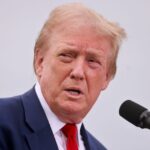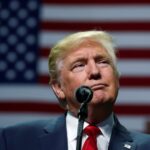Chancellor Olaf Scholz has been confirmed as the lead candidate for Germany’s Social Democratic Party (SPD) for the upcoming snap federal election scheduled for February 23. Despite the recent collapse of his coalition government and low approval ratings, Scholz was unanimously chosen by the party’s executive committee on Monday to run for a second term.
Following a period of uncertainty within the SPD, Defense Minister Boris Pistorius, who had been considered a potential candidate, announced last week that he would not seek the chancellorship, endorsing Scholz instead. Pistorius’s decision came as a relief for Scholz, who has been facing significant challenges within his party and from the broader electorate.
The SPD’s decision to back Scholz was made ahead of the party conference slated for January 11, where his candidacy is expected to be formally ratified. Scholz’s current standing as the least popular chancellor since Germany’s reunification poses a formidable obstacle in the upcoming election, with his party trailing in third place according to recent polls.
A survey released on Saturday by INSA showed the SPD with 14% support, lagging behind the conservative CDU-CSU union at 32% and the far-right Alternative for Germany (AfD) at 19%. In a separate poll, Scholz’s personal popularity was measured at 39%, slightly behind the conservative’s candidate Friedrich Merz, who garnered 44%.
The SPD’s difficulties have been further highlighted by the collapse of the governing “traffic light” coalition earlier in November, which included the Greens and the Free Democrats (FDP). The dismissal of FDP’s Finance Minister Christian Lindner by Chancellor Scholz led to the breakdown of the coalition over disagreements on economic recovery strategies.
The SPD’s internal debates have drawn criticism, with the party’s youth branch, the Young Socialists, expressing strong dissatisfaction with the leadership’s handling of the situation. Party co-leaders Saskia Esken and Lars Klingbeil faced backlash during a recent meeting, with Esken acknowledging the party’s poor image and Klingbeil emphasizing the need for unity and a focused election campaign.
As the election approaches, other parties have also lined up their candidates. The Greens have put forward Economics Minister Robert Habeck, with support from Foreign Minister Annalena Baerbock. The CDU’s Friedrich Merz is currently leading the polls, and the AfD, classified as “extreme-right” by the Bundesverfassungsschutz, has nominated Alice Weidel as their chancellor candidate.




